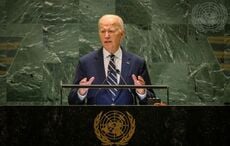Diageo, the drink company backing Guinness, Baileys, and Smirnoff Office, has started a €4 million initiative to have midwives explain to pregnant mothers the dangers of drinking while expecting. The funds will also cover a new online course and various packages.
However, The British Medical Association (BMA) expressed their concern about how “the drinks industry funding heath campaigns” could create a conflict of interest. The BMA also does not want the advice that Diageo is giving to be the only advice that the pregnant women follow, and thus they are encouraged to seek, as always, the advice of a licensed clinician.
_____________________
Read more:
Guinness promos were in bad taste
Guinness should not cost more in Dublin than in New York
Ireland top ten drinks of choice
____________________
Currently, the British government advises pregnant women to refrain from all alcohol as much as possible during pregnancy, but “one to two units a week after the first trimester” is acceptable. The BMA will continue to discuss their fears, mainly regarding how effective an alcohol company funding what is essentially an anti-alcohol campaign can be, later this month.
However, not all members of the government are against the education program; according to MailOnline, Anne Milton, the public health minister, claims that Diageo’s program is “a great example of how business can work with NHS staff to provide women with valuable information.”
MailOnline also cites that other companies such as KFC and PepsiCo are being recruited to participate in similar, pro-health campaigns. America has already seen this with Subway and Jared Fogel, who claims to have lost an impressive amount of weight by eating primarily Subway sandwiches and working out.
Thus, by participating in such initiatives, programs like Diageo might consequently increase their popularity. Based on their spending, this seems to be a primary concern of the company considering they put €840 million into their marketing last year alone.
The budget for their pro-health campaign is only .0048% of what they put into marketing last year.




Comments